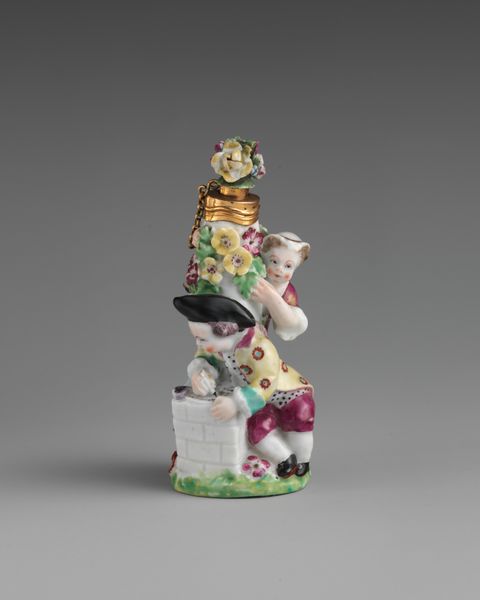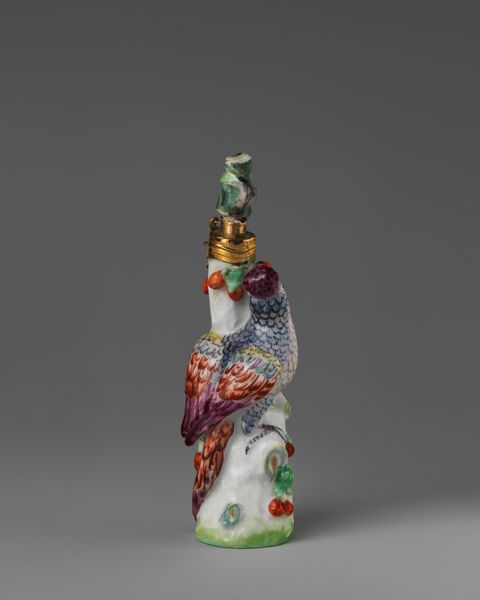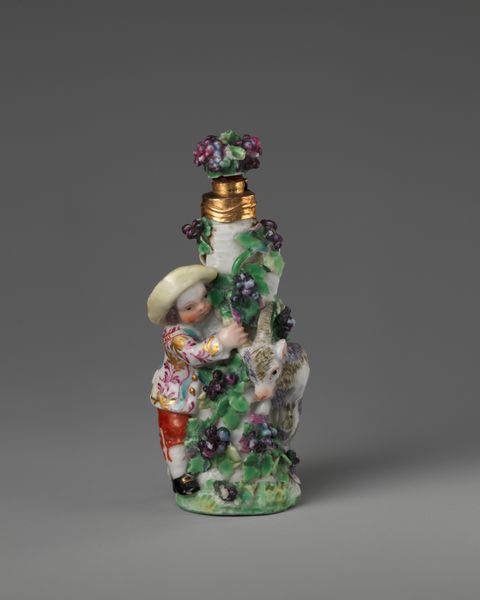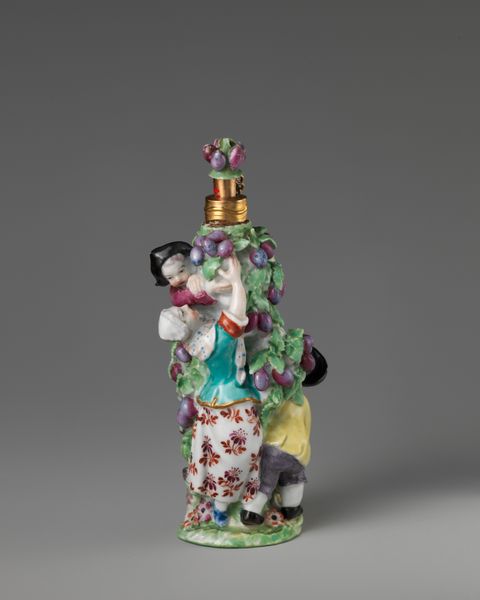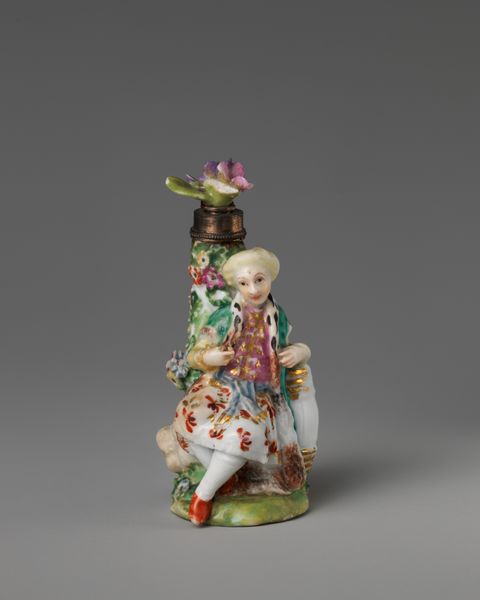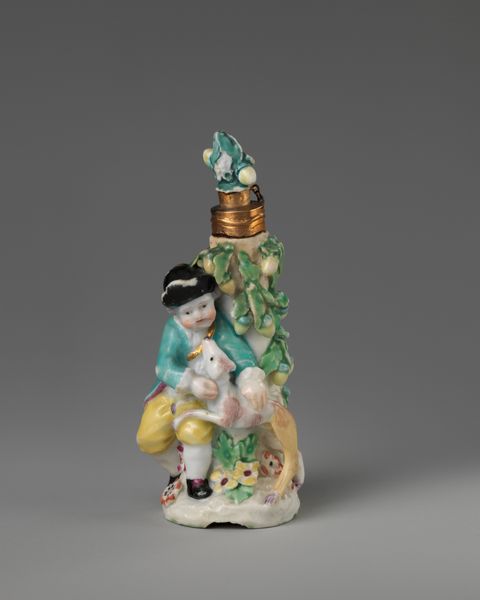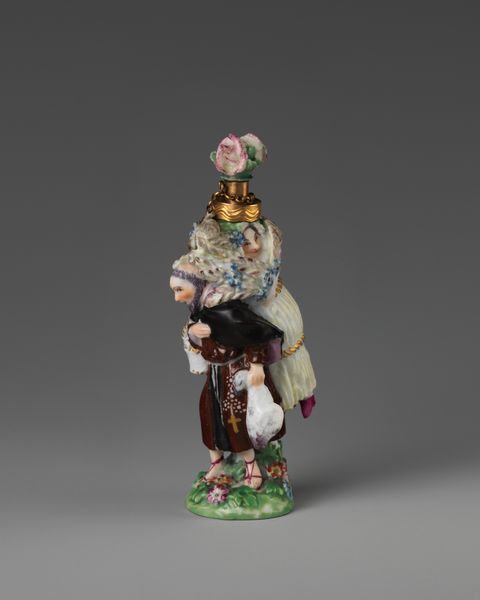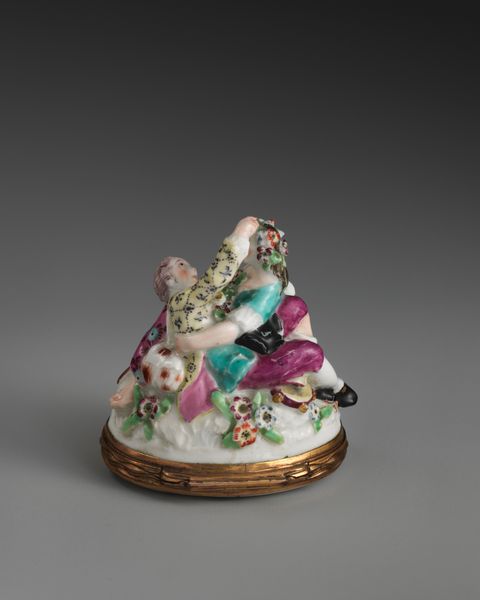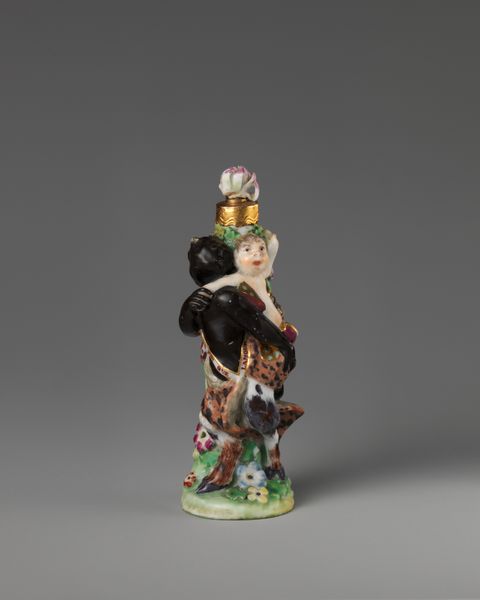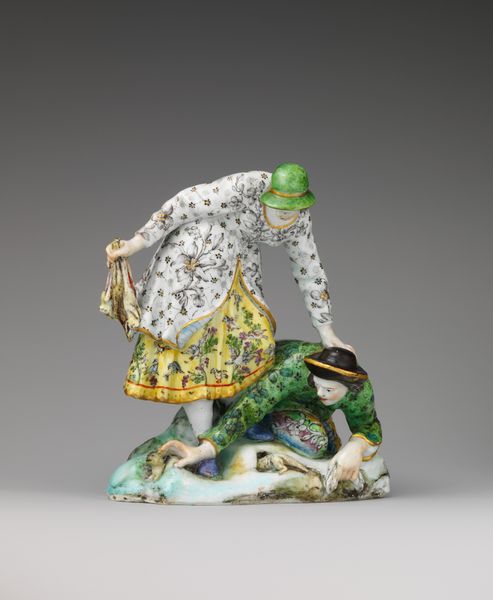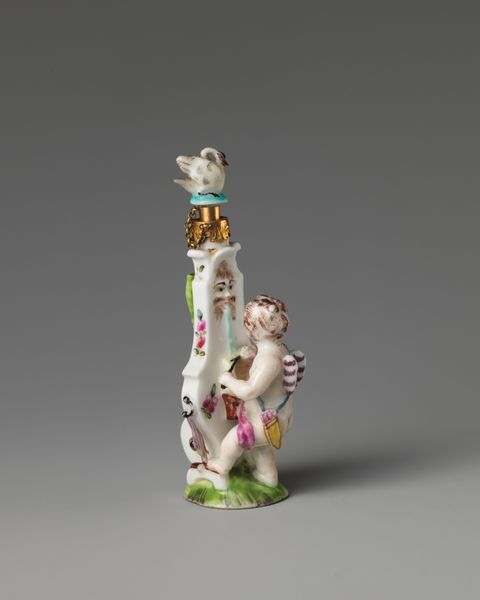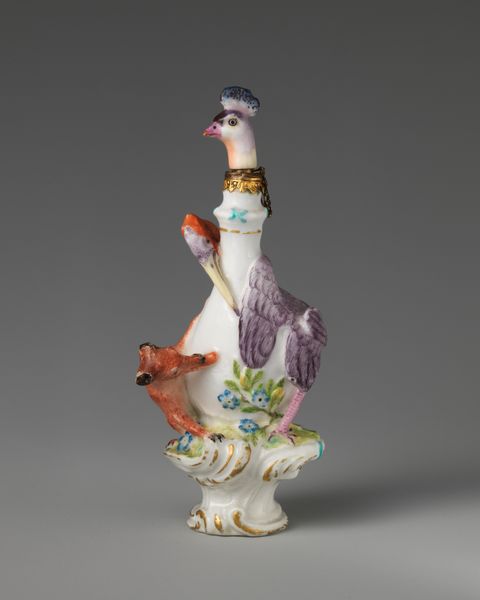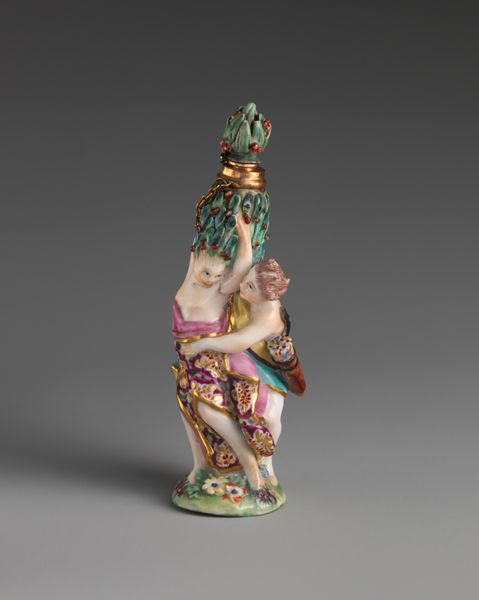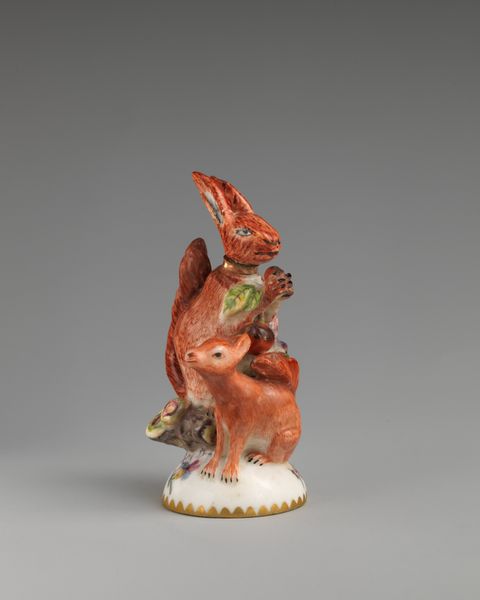
ceramic, porcelain, sculpture
#
fairy-painting
#
animal
#
ceramic
#
bird
#
porcelain
#
figuration
#
sculpture
#
decorative-art
#
miniature
#
rococo
Dimensions: Overall: 3 × 1 1/2 in. (7.6 × 3.8 cm)
Copyright: Public Domain
Editor: This is a porcelain sculpture from the Chelsea Porcelain Manufactory, made sometime between 1750 and 1760, titled "Fox and Crow in a Group". It's incredibly detailed, given its small size. It seems to be referencing a fable, doesn't it? How would you interpret this work? Curator: Absolutely. The grouping immediately evokes the fable of the fox and the crow. Notice how the fox strains upwards, its gaze fixed on the crow perched above. This isn't just a scene; it’s a representation of desire and deceit. The crow, holding what appears to be cheese, embodies vanity, easily swayed by flattery. It is interesting how artists through time and across cultures continuously return to particular sets of imageries. Have you noticed it in other contexts? Editor: Now that you point it out, yes. I remember similar dynamics of predator and prey, naivety and cunning, in other artworks and literary works. Is the choice of porcelain significant, perhaps emphasizing the fragility of the crow's pride? Curator: Precisely. Porcelain, being delicate and precious, enhances the moral lesson. The Rococo style, with its playful curves and ornamentation, adds to the scene's deceptive charm. Think of how the material itself speaks. Its smoothness invites touch, even as the subject warns against manipulation. The sculpture becomes a symbol of the deceptiveness present in appearances. How interesting is that! Editor: It's fascinating how much meaning is packed into such a small object. I’ll never look at a porcelain figurine the same way again. Curator: Indeed, understanding symbols and imagery allows us to unravel layers of cultural memory embedded within the artwork.
Comments
No comments
Be the first to comment and join the conversation on the ultimate creative platform.
